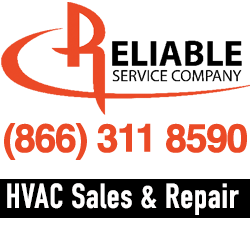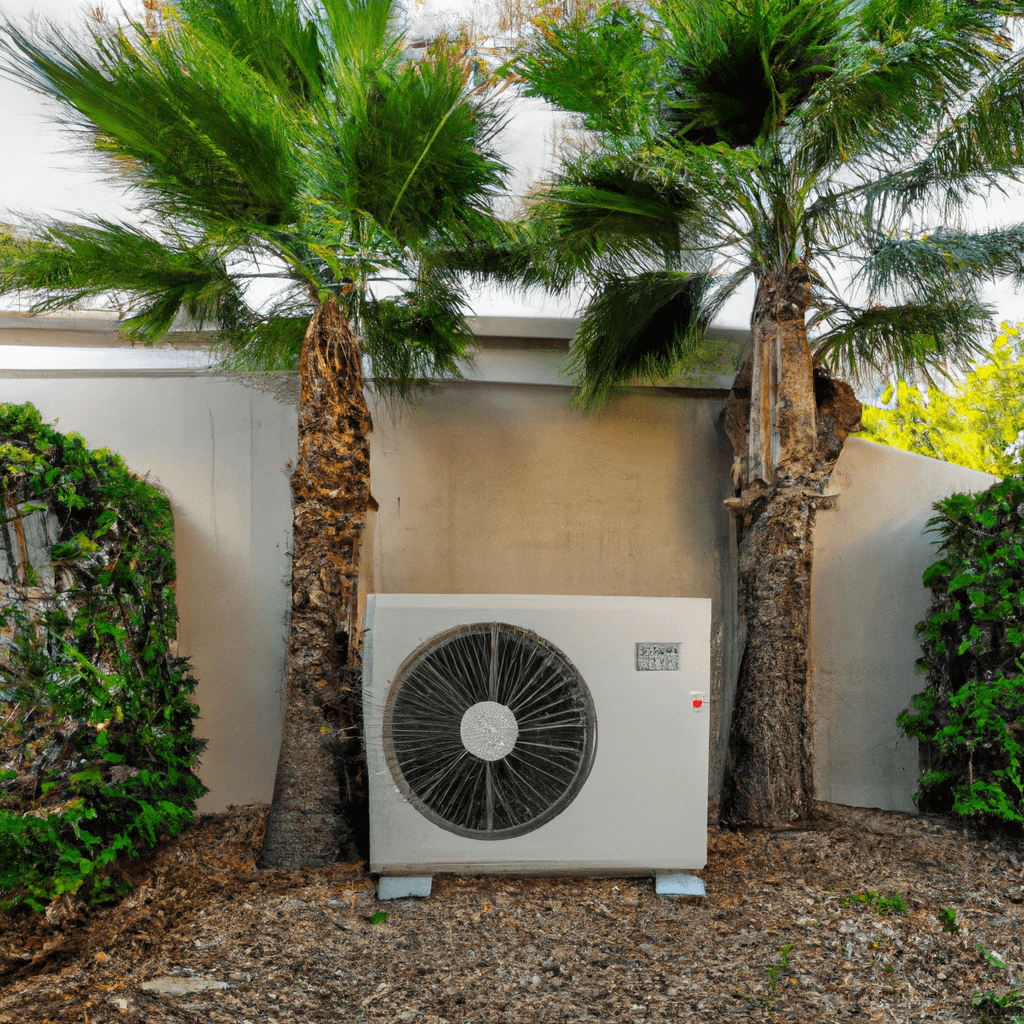Central AC not cooling enough? Try these Troubleshooting Tips
Nobody likes feeling hot and sweaty indoors, especially when the air conditioning seems to be doing nothing to cool the home off, leaving you with nothing to do but break out a fan and hope for the best. If you’re having issues with your central AC system not cooling effectively, some basic troubleshooting can help you identify the problem and give you a better chance of getting the cooling you need to make it through the steamy summer.
Check and Switch the Thermostat
The first step is to ensure the thermostat is set properly and configured correctly for summer temperatures. Look for a switch on the thermostat that controls summer and winter modes and make sure it’s set to summer and that your thermostat is set to a temperature lower than the current room temperature. You should also check to see that the current indoor temperature is correctly listed on the thermostat and make adjustments as needed.
Check and Update the Air Filters
Filters work to keep the air clean, but they can also restrict airflow when they become clogged with dust and debris. Checking and replacing your air filters on a regular basis is an effective way to boost cooling power and reduce the strain on the system. Clogged filters can also restrict airflow and reduce the efficiency of the air conditioner, while replacement filters will provide adequate air circulation to keep your home cooling effectively.
Clear Blockages from Around the Exterior Condenser
Next, inspect the exterior condenser unit for any obstructions that might be obstructing airflow. Remove anything that’s blocking the condenser’s vents, such as lawn furniture, toys, plants, and debris. Also, check to make sure the condenser fan is clean, free from debris, and spinning properly. Check for any birds that may have built a nest in the air conditioner and remove it if necessary.
Look for Low Refrigerant Levels
The most common cause of an AC not cooling is due to a leak of refrigerant. This is usually caused by a cracked hose, a damaged component in the air conditioner, or a leak in the vacuum lines. When checking for low refrigerant levels, look for hissing or bubbling sounds or unusual odors or smells. You may also see drops or puddles at the base of the unit. If you detect a refrigerant leak, do not try to repair it yourself, as this can be a dangerous task and must be handled by a professional HVAC technician.
Get a Professional HVAC inspection
If these basic DIY troubleshooting tips don’t solve the problem, then it may be time to call in a professional HVAC technician to inspect the system and make repairs if necessary. A qualified technician will be able to diagnose the problem and suggest the best course of action to restore your cooling.
Conclusion
When your central AC system is not cooling efficiently, try these basic troubleshooting tips to identify the cause of the problem. If these tips don’t bring any relief, contact a local, reliable appliance repair service like (866) 311-8590 to get a professional HVAC inspection to identify and fix any underlying issues. Taking a proactive approach to AC maintenance will help ensure that your home stays cool and comfortable throughout the hot summer months.



Central AC not Cooling Enough: Prevention Tips
Having a well-functioning air conditioning (AC) unit is essential if you want a comfortable home during the hot summer months. Unfortunately, AC units can malfunction and require repair or maintenance, resulting in warm months in an overcrowded, sweltering home. To avoid the disappointment and heat caused by a non-functioning unit, it is important to regularly maintain your AC unit and be aware of the manufacturer’s recommendations, local appliance companies’ suggestions, and HVAC technicians’ advice for preventing AC issues.
Manufacturer Recommendations
In general, manufacturer recommendations involve changing filters every month, keeping registers unblocked, and keeping the condensation line clear to make sure the unit continues running smoothly.
Change Filter Regularly: Replacing the air filter for the central AC unit is one of the most important steps for preventing AC issues. It is recommended to change the filters monthly or more frequently, depending on the type of filter used and the activity levels in the house, to ensure the AC unit is working efficiently.
Keep Registers Unblocked: Register vents should not be blocked at any time, as doing so could damage the system and decrease the effectiveness of the AC unit. All furniture or drapes should be at least several inches away from the vents to allow unrestricted airflow.
Clean Condensate Line: Inside the AC unit, there is a condensate line which needs to be cleared regularly to keep the system running smoothly. This line should be checked to make sure the draining process is not clogged and clear at all times.
Local Appliance Companies’ Suggestions
Although appliance companies may not be licensed to work on an AC unit, they may give advice regarding preventative measures to avoid Central AC not cooling enough issues. Common advice provided by a local appliance company includes cleaning the outdoor unit routinely and checking the thermostat on a regular basis.
Clean Outdoor Unit: The outdoor AC unit should be kept clean of debris and leaves. In addition to avoiding debris build-up, debris can also suck up warm air, preventing considerable cooling of the area.
Check Thermostat: It is important to ensure that the thermostat is set at an appropriate temperature to keep the cooling system working efficiently. It is also important to make sure the thermostat is not set inside a hot room to prevent an inefficient cooling system.
HVAC Technician Recommendations
Beyond basic manufacturer and appliance company recommendations, it may be necessary to hire a professional HVAC technician to check an AC unit’s performance and environmental factors. Specifically, the HVAC technician can inspect air ducts for any leakage, check for any refrigerant leaks, and assess indoor air quality.
Inspect Ducts for Any Leakage: HVAC technicians can identify any duct leakage that could be preventing the AC from cooling properly.
Check for Refrigerant Leaks: Refrigerant leaks are a common cause of AC units not cooling enough. A refrigerant leak can increase the cost of an AC unit, so it is important to properly monitor and maintain the refrigerant levels.
Assess Indoor Air Quality: HVAC technicians can measure the quality of indoor air, such as dust and pollen levels. By monitoring the indoor air quality, the AC unit will perform more efficiently and any issues of not cooling enough can be quickly identified.
By following the manufacturer’s recommendations, the advice of local appliance companies and the maintenance of a professional HVAC technician, preventative steps can be taken to ensure that the central AC unit will not have any cooling issues. By regularly monitoring and maintaining the central AC unit, the risks of having to repair or replace the unit in the future can be significantly reduced.
Average Repair Cost for Central AC Not Cooling Enough
Fixing a Central AC that’s not cooling enough can be a tedious process. Common repairs or installations include replacing faulty or outdated systems and often require replacing parts or overhauling the entire unit. Homeowners should expect to pay anywhere from 20% to 60% more for materials and labor than expected — and the complexity of the issue and the cost of materials can increase repair costs for such an issue.
Depending on the size and type of system, common parts that may need to be replaced include:
- Compressor
- Fan motor
- Blower motor
- Freon lines
- Heat exchanger
- Expansion valve
- Evaporator coils
The repair cost for such an issue in California can range anywhere from $2,000 to $14,000. If your Central AC needs a repair or installation, contact a local and reliable air conditioning & heating contractor like Local Reliable Air Conditioning & Heating at (866) 311-8590 for a free quote. A technician can inspect your system and provide an estimate of what repairs or installations may be needed and their associated costs.
Central AC Not Cooling Enough? Get Reliable Air Conditioning & Heating
Is your home unhappy because your central air conditioning isn’t cooling enough? Don’t wait until it’s sweltering to get help. California’s Reliable Air Conditioning & Heating offers same-day service for appliance and HVAC repair and installations.
Reliable Air Conditioning & Heating is a family-owned business. Their team consists of highly trained technicians with a minimum of 5 years experience. They’re well-equipped to handle all types of Central AC issues that are not cooling enough, and offer fair and affordable prices.
Reliable Air Conditioning is licensed and insured, and all their repairs are backed by a 90-day warranty. They also provide their customers with special packages to help them keep their HVAC system running smoothly and efficiently.
For fast, reliable, long-lasting Central AC repair, contact Reliable Air Conditioning & Heating in California. Their experienced team will quickly determine what’s wrong with your central AC unit and take the right steps to get it cooling your home again.
FAQs: Central AC Not Cooling Enough
Q1: What should I do if my Central AC is not cooling properly?
Before troubleshooting, check the temperature setting of the thermostat. If the temperature is set too high, the AC unit won’t be able to cool the air efficiently. Also, check for any obstructions that might be blocking airflow to the unit, and make sure all of the AC’s vents are open.
Q2: How do I ensure the air filter is clean?
First, locate your AC’s air filter. Depending on the type of unit, it could be located outside, inside, or in the furnace. Once you’ve located the filter, check if it is clogged with dust and debris, then clean or replace it as needed.
Q3: How do I check the Refrigerant levels?
First, turn the AC system off and turn all of the circuit breakers to “off” mode. Then, check the levels of the refrigerant in the AC unit by connecting the coolant lines to the gauges and turning the pressure on the gauge to the lowest setting. If the level is low, you have a leak in the system and need to call an AC technician.
Q4: How often should I clean my AC unit?
At least twice a year, or whenever you notice dirt accumulation, wipe and clean the exterior of the unit to prevent oil and dirt buildup.
If you experience any other problems with your Central AC and are unable to fix it on your own, it is best to call a Local Reliable Appliance Repair at (866) 311-8590.

